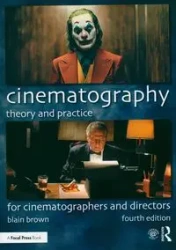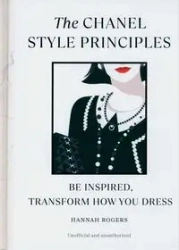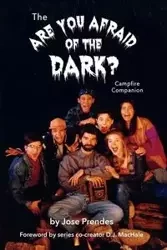Książki o filmie, teatrze i TV po angielsku
( ilość produktów: 10 )Książki obcojęzyczne - Film Teatr Telewizja : Angielski

Selected Tables, Charts and Formulas for the Student Cinematographer from the American Cinematographer Manual

Frida Kahlo - Lozano Luis-Martín
- Autorzy:

Star Wars Battles That Changed the Galaxy - Cole Horton, Jason Fry, Amy Ratcliffe, Chris Kempshall

Doctor Who: The Vault - Marcus Hearn
- Autorzy:

Project UrbEx - Nakamura Ikumi
- Autorzy:

Cinematography: Theory and Pra

The Chanel Style Principles - Hannah Rogers
- Autorzy:

Anime Through the Looking Glass - Nathalie Bittinger
- Autorzy:
Książka o filmie, teatrze i telewizji po angielsku w Matfel.pl
Serdecznie zapraszamy do odkrycia świata kinematografii, teatry oraz telewizji za pośrednictwem naszych znakomitych książek o filmie, dramacie i TV po angielsku. Na naszych półkach możemy pochwalić więc niezwykle bogatą gamą literatury poświęconej tym niesamowitym tematom. Od przewodników po klasykach światowego kina, przez poradniki dla aspirujących filmowców, reżyserów, aktorów i producentów do głęboko analitycznych pozycji dla prawdziwych kinomaniaków i wielbicieli teatru.
Angielska książka o teatrze
Nasze książki o teatrze po angielsku to idealna propozycja dla wszystkich miłośników tej sztuki, zarówno dla tych, którzy teatr wolą oglądać, jak i tych, którzy sami stawiają swoje kroki na tej wyjątkowej scenie. To prawdziwa skarbnica wiedzy o dramaturgii, reżyserii, aktorstwie i wielu innych aspektach świata teatru.
Różne książki o telewizji po angielsku
Wiele osób myśli o telewizji jako o jedynie o medium rozrywkowym, zapominając, że telewizja to przede wszystkim medium informacyjne. Z naszymi książkami o telewizji po angielsku poznasz inne, mniej znane aspekty tej niezwykłej technologii. Możesz dowiedzieć się, jak wygląda branża od środka, jakie są jej specyfiki i wyzwania.
Eksploruj angielskie kino książki na naszej stronie
Za pośrednictwem naszych angielskich książek o kinie będziecie mogli dowiedzieć się wiele o wielkości angielskiego kina, a także i o jego stylach, kierunkach artystycznych i największych twórcach
Poznaj nasze książki o filmie i teatrze po angielsku
Bez względu na to, czy jesteś miłośnikiem filmów czy teatru, czy chcesz poszerzyć swoją wiedzę o angielskim świecie kinematografii i teatru, nasze książki o filmie i teatrze po angielsku z pewnością sprostają Twoim oczekiwaniom. Wiemy, jak niezwykle różnorodne są gusta i zainteresowania naszych klientów, dlatego staramy się, aby nasza oferta była jak najbardziej zróżnicowana.
Zaufaj naszemu doświadczeniu – wybierz nasze książki o filmie i teatrze po angielsku
Dbamy o to, aby nasi klienci otrzymywali tylko sprawdzone, wysokiej jakości pozycje. Nasze książki o filmie i teatrze po angielsku są starannie wybierane i sprawdzone pod kątem jakości tłumaczenia i merytorycznej zawartości. Wierzymy, że dobry książka może być nie tylko źródłem wiedzy, ale przede wszystkim prawdziwą przyjemnością. Zaufaj naszemu doświadczeniu i wybierz książki, które na zawsze zmienią Twój sposób postrzegania świata filmu i teatru.
Odkryj książki o filmie i teatrze po angielsku i naucz się płynnie czytać!
Czy wiesz, że czytanie książek w obcym języku to jeden z najskuteczniejszych sposobów na naukę i doskonalenie języka? Dlatego zapraszamy Cię do odkrycia naszych książek o filmie i teatrze po angielsku. U nas nie tylko poznasz świat filmu i teatru, ale także poprawisz swój język angielski – będziesz lepiej czytać po angielsku, a także poznasz wiele nowych słów i zapamiętasz, jak powinny wyglądać poprawnie skonstruowane zdania na piśmie.






